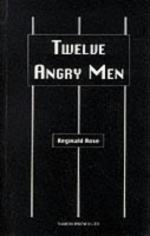
|
| Name: _________________________ | Period: ___________________ |
This test consists of 5 multiple choice questions, 5 short answer questions, and 10 short essay questions.
Multiple Choice Questions
1. Which juror admits to having changed his vote?
(a) Juror Five.
(b) Juror Ten.
(c) Juror Eleven.
(d) Juror Nine.
2. What important information about the jurors' behavior becomes evident during their deliberations in Act II?
(a) They do not pay much attention to the facts.
(b) They are influenced by the judge's instructions.
(c) They are not interested in justice.
(d) Their judgment is affected by their own personal experiences and values.
3. What two reasons cause a juror to believe there is reasonable doubt about the defendant's guilt after adding doubts about the old man's testimony to earlier discussions about the murder?
(a) The arguments of Juror Eight and Juror Nine.
(b) The fact that a similar weapon was easily available and that the old man might have been lying.
(c) The fact that the old man was hearing impaired and wore glasses.
(d) The realization that the woman wears glasses and she saw the murder through the train.
4. What principle is supposed to guide the composition of a jury in relation to the defendant?
(a) They should be from similar backgrounds.
(b) They should know the defendent's circumstances well.
(c) They should be twelve members of the community who are the defendant's peers.
(d) They should be from the same ethnic group.
5. How do some members of the jury respond to those who disagree?
(a) With additional questions.
(b) With an open mind.
(c) With contradictions.
(d) With ostracism and ridicule.
Short Answer Questions
1. What attribute is consistently demonstrated by Juror Eight which helps the other jurors to unravel the case?
2. What does Juror Eleven assert in defense of the result of the second vote?
3. Which juror is an immigrant to the United States?
4. How does Juror Eight get the others to realize that the defendant might not have killed his father although he said "I'm gonna kill you"?
5. What does Juror Three convey to the jurors by his insistence of the defendant's guilt?
Short Essay Questions
1. What incident ensues as a result of the experiment to verify the old man's testimony?
2. How do the tone and mood of the play vary as Act II develops from the result of the second vote to the taking of the third vote?
3. What do the events of Act II demonstrate about the group and about the influence of Juror Eight?
4. Referring to events in Act II, track the process by which Juror three is established as the antagonist.
5. As the jurors assess whether the old man told the truth in his testimony, how does Juror Nine use his own life experience to provide insight into the old man's behavior?
6. What evidence of preconceived notions and prejudice does the writer present in Act II?
7. How does the writer use Act II to establish Juror Three and Juror Eight as the antagonist and the protagonist respectively?
8. In Act II, what are the immediate responses to the secret ballot taken by the eleven jurors?
9. How is irony used by the writer in the confrontation between Juror Three and Juror Eight? What is the result?
10. How and why do the discussions of the old man and the alleged threats made by the defendant affect one of the jurors?
|
This section contains 1,738 words (approx. 6 pages at 300 words per page) |

|




